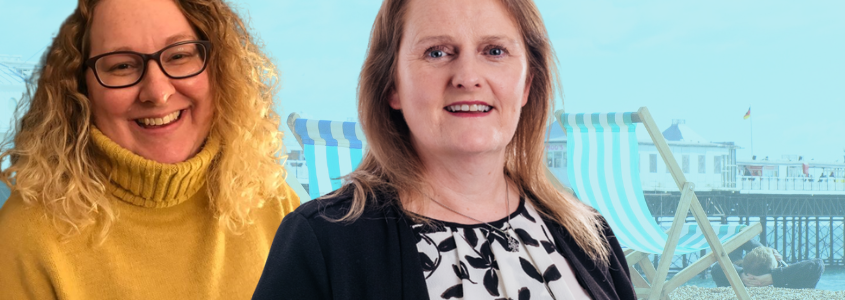Susan Fletcher-Watson with Mary Doherty

Neuroscience and Neurodiversity: In conversation with Dr Mary Doherty & Prof Sue Fletcher-Watson
In this session, Sue will interview Mary - a leading autistic doctor, activist, campaigner and researcher - about the intersection between neuroscientific research and the neurodiversity movement. Together they will briefly define neurodiversity and the key elements of the movement, explaining how this is relevant to a BNA audience, before going on to consider why and how neuroscience could become more neurodiversity-informed. Specific topics being discussed in this plenary session will include
- opinions of the autistic community on neuroscience research methods, priorities, risks and opportunities
- the extent to which the voices of autistic graduates and campaigners can reflect the priorities of autistic people with less capacity for self-advocacy
- relevance of these observations to translational neuroscience research more broadly, including investigations of neurodevelopment, mental health, and neurodegeneration
- the roles community stakeholders can play in the translational neuroscience agenda, and the advantages this brings
The session will end with a chance for the audience to also ask their own questions from both plenary session contributors.
 This plenary session is supported by DeepMind, a team of scientists, engineers, ethicists and more, committed to solving intelligence, to advance science and benefit humanity.
This plenary session is supported by DeepMind, a team of scientists, engineers, ethicists and more, committed to solving intelligence, to advance science and benefit humanity.
When DeepMind was started in 2010, there was far less interest in the field of AI than there is today. DeepMind developed the field by taking an interdisciplinary approach, bringing together new ideas and advances in machine learning, neuroscience, engineering, mathematics, simulation and computing infrastructure, along with new ways of organising scientific endeavour.
At the heart of DeepMind's mission is the commitment to act as responsible pioneers in the field of AI, in service of society’s needs and expectations.
DeepMind joined forces with Google in 2014 to accelerate their work while continuing to set their own research agenda. Their programs have learned to diagnose eye diseases as effectively as the world’s top doctors, to save 30% of the energy used to keep data centres cool, and to predict the complex 3D shapes of proteins - which could one day transform how drugs are invented.
Visit Stand 37 during the Festival to find out more and meet people from the DeepMind team.
